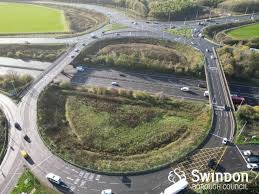The Economist this week published an article entitled The real reason it takes so long to build infrastructure in Britain.

Having discussed the likely 20+ years it will take to build a new phase of the A428 from the Black Cat roundabout – just six miles away from where I live, it explains how the 2008 Planning Act has stopped working well. The fundamental idea was sound. Agree National Policy Statements (NPSs) about various types of infrastructure (Ports, rail, airports, water, energy etc) so that we know as a country what we want to build. Then you can focus individual project consultations on site selection and their acceptability to local communities.
In my view, few of these were consulted upon well, so many NPSs failed to adequately address the inevitable trade-offs. And those trade-offs have become even more difficult as newer policies have emerged. For example since the Roads NPS, we have adopted ambitious plans to decarbonise. Since BREXIT, we have a theoretical potential to change underlying assumptions about environmental constraints. No wonder high-profile projects like the Heathrow third runway ended up in the High Court.
The Economist concludes that the current log-jam of projects awaiting a yes/no from Government is not the result of excessive consultation – but the failure of recent politicians to take difficult decisions and balance competing policies. Quite right!
Today, I have sent the following letter to the Editor of The Economist,
You are surely right to blame political dither and indecision for the slowdown in approving major
infrastructure projects (7 Nov).
] The virtue of the 2008 Act was to take the general Should we?/Shouldn’t we? decisions up front through
the National Policy Statements (NPSs) so as to focus the project consultations on the suitability of site
selection and the acceptability of the specific development.
Those statements required Ministers to make the difficult trade-offs, but as in the case of Airports, (six
years later than the early NPSs) many were fudged and delayed and few were consulted upon properly.
Confused politicians unwilling to offend conflicting interests have created a vacuum.
It is this, rather than the democratic imperative of consulting affected communities that has led to the
current log-jam.
Leave a Comment
I hope you enjoyed this post. If you would like to, please leave a comment below.